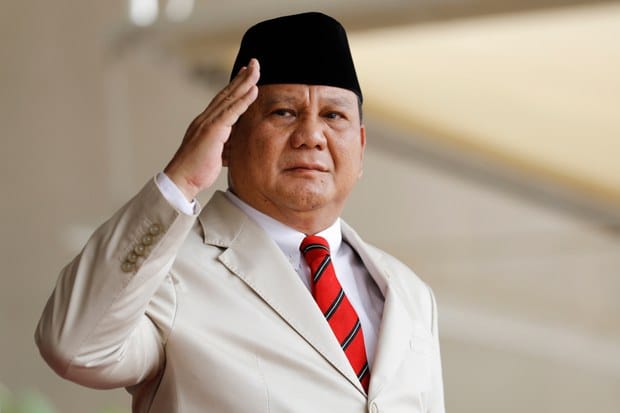Prabowo’s Path to Power: Sweeping Cabinet Expansion Raises Fiscal and Governance Concerns in Indonesia
On Thursday, the House of Representatives passed a revised law that removes the cap of 34 ministries, giving Prabowo full authority

In a bold legislative move, Indonesia's President-elect Prabowo Subianto has gained unprecedented powers to reshape the nation's government, clearing the way for a potentially record-breaking expansion of ministerial posts. On Thursday, the House of Representatives passed a revised law that removes the cap of 34 ministries, giving Prabowo full authority to create new ministries and restructure existing ones, a move that could fundamentally alter Indonesia’s political landscape.
With support from a coalition controlling 82% of parliamentary seats, Prabowo is poised to form a cabinet that could include up to 44 ministries—potentially the largest in Indonesia’s post-reform history. This significant shift is expected to allow the new president to distribute cabinet positions among his allies, securing political support in exchange for influence over key ministries.
“This law aims to build an effective and efficient system,” said Administrative Reform Minister Abdullah Azwar Anas, during the plenary session. Proponents argue that the new flexibility will enable Prabowo to create specialized ministries to address urgent national issues, such as water security and children’s nutrition. A proposed ministry dedicated to overseeing a national free meal plan for children is already under discussion.
However, this expansion is not without controversy. Economists and analysts have raised concerns about the financial and bureaucratic costs associated with a larger government structure. Ministry expenditures have skyrocketed over the last eight years, and experts warn that further growth could strain Indonesia’s fiscal resources. With major infrastructure projects like the new $34 billion capital city, Nusantara, already in the works, critics argue that additional ministries may lead to overlapping authorities and inefficiencies, stalling key government initiatives.
“More ministries mean more bureaucracy, which will complicate regulatory processes and deter foreign investment,” said Bhima Yudhistira, Executive Director of the Center of Economic and Law Studies. He added that Prabowo’s decision risks inflating public spending at a time when Indonesia needs fiscal discipline to manage its ambitious development goals.
Further concerns have been raised about the impact on governance. Analysts warn that Prabowo’s extensive coalition, while providing political stability, could undermine Indonesia’s checks and balances. With the Indonesian Democratic Party of Struggle (PDI-P) serving as the only opposition party, Prabowo’s administration may face little resistance in parliament, leading to concerns about unchecked executive power.
“This level of control could erode the role of opposition and stifle critical debate, leading to policy decisions that serve political interests over the public good,” said Achmad Sukarsono, an associate director at Control Risks, a Singapore-based consultancy.
As Indonesia prepares for Prabowo’s official inauguration in October, the implications of these sweeping changes are being closely watched. While the expanded cabinet may help Prabowo deliver on his promises of rapid economic growth and social reform, the long-term impact on governance and fiscal stability remains uncertain.
This story continues to develop as Prabowo and his allies fine-tune the cabinet structure.





